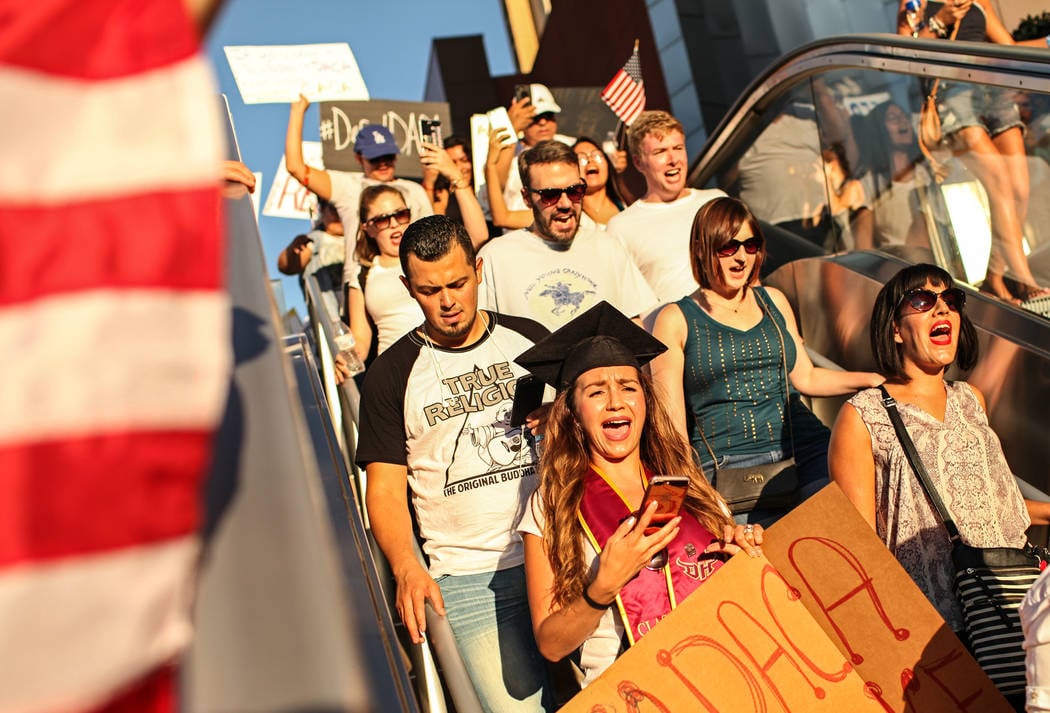Las Vegas DACA Casino Workers’ Status in Limbo After Supreme Court Delays Case Review
Posted on: January 23, 2019, 08:20h.
Last updated on: January 23, 2019, 08:28h.
The Supreme Court of the United States (SCOTUS) recent decision not to take up the DACA case has hit close to home in Las Vegas, where many casino and hotel workers with Deferred Action for Childhood Arrivals (DACA) status are employed.

Nevada has 12,860 DACA recipients statewide, and 10,300 of those live in the Las Vegas, and surrounding cities of Henderson, and Paradise, according to a 2018 report from US Citizenship and Immigration Services. Nationally, there are 703,890 DACA recipients, the report adds, and while many are Hispanic, plenty of other ethnicities are also represented in DACA’s numbers.
How Will it Affect Las Vegas Dreamers?
Depending on who you ask, the inaction by the highest court in the land is either a victory of sorts, or puts Dreamers (which stands for the Development, Relief and Education for Alien Minors [Dream] Act, which failed to gain passage during Obama’s Congress) in an even more precarious position as far as their residency status goes.
Michael Kagan, UNLV’s Immigration Clinic director, told Casino.org that “this decision buys time, and it means that employees can stay in their jobs at least through the end of this year, most likely. That’s a little bit of stability for both businesses and workers. But you really have to be cautious, because this is far from resolved,” he added.
“Calling this a victory goes too far,” Kagan added. “The Supreme Court literally did nothing. They made no decision. All this means is that the timetable is slowed down a bit.” Before this week, Kagan said he thought there might be a final ruling on DACA as early as June. “Now, it seems likely that it won’t come until 2020,” he determined.
He describes Las Vegas “an immigrant city. There are more undocumented immigrants per capita in Nevada than any other state. We are the frontline in battles over immigration. There are thousands of people here affected. And it’s not just workers and students who are themselves depending on DACA and TPS [temporary protected status].”
It can impact families where only some members are undocumented.
When asked for comment on the latest move by the Supreme Court, Monica Garcia — a spokesperson for US Sen. Catherine Cortez Masto (D-NV), told Casino.org that the senator “believes the court’s decision not to hear the DACA case offers short-term relief to DACA recipients, but underscores the need for congressional action to protect Dreamers.
“She’ll continue pushing for bipartisan legislation to put Dreamers on a path to citizenship so that they can continue living and working in the only home they’ve ever known,” Garcia said.
Casino, Union Reactions
Similarly, Brian Ahern, director of corporate media relations for MGM Resorts International, told Casino.org, “MGM Resorts is proud to stand with Dreamers and support solutions that provide young people with stability and the chance to continue making valuable contributions to our country and workforce.
“It’s also long past time for Congress to address this important issue and take up comprehensive immigration reform,”Ahern added.
Both MGM Resorts and Caesars Entertainment previously have urged Congress to move quickly on immigration reform.
Bethany Kahn — a spokeswoman for the Las Vegas Culinary Union Local 226, which represents some 57,000 Nevada workers — told Casino.org, “There are thousands of workers who work legally, pay taxes, have homes in Las Vegas, raise their US citizen children in Nevada, and are an essential part of our community.”
She advises “immigrant youth [to] renew their DACA [status] now if they have not already. The Culinary Union will keep fighting for immigrant workers who are here to stay. This is their home, and this is their country.”
She added that the justices could later this year decide to hear a DACA case.
Bill Hing, director of the Immigration and Deportation Defense Clinic at the University of San Francisco School of Law, called the Supreme Court’s actions on DACA “very significant” for designees. But all is not lost, he says.
“Those folks still have their [DACA] authorization,” Hing told Casino.org. “It’s definitely a win for them because their status has not [been] terminated.”
But it also leaves that status on unsure footing. “The [high] court is not ready to take a case [on] whether or not the president properly terminated DACA,” Hing explained.
What is DACA, Anyway?
DACA — a federal program created by President Obama — defines who can be eligible for temporary protection from deportation, even though they may have illegally entered the United States as children. It also defines some employment determinations for those who fit the Dreamer category.
It comes with very specific and fairly complex guidelines, which include age restrictions, how old you were when you first arrived in the United States, how long you have been a US resident, and whether or not you have any significant criminal history in America.
Also used to determine who can qualify are factors such as your graduation status and US military service, and whether or not you “pose a threat to national security or public safety,” according to the Department of Homeland Security’s website.
No comments yet